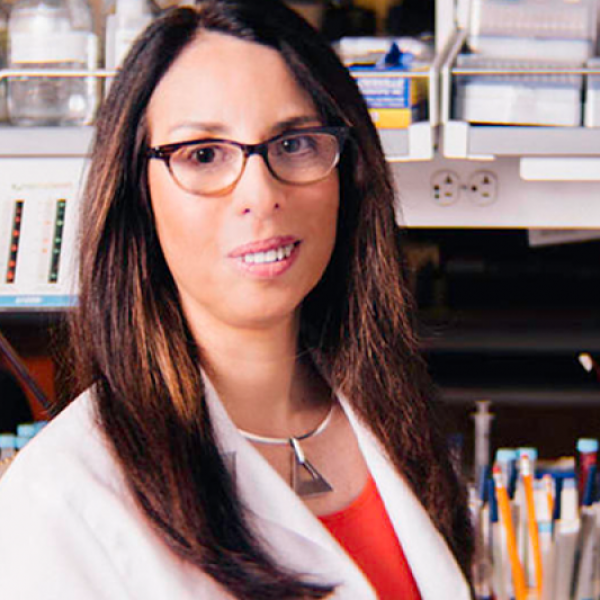Edwin Bremer

As a student, Edwin Bremer quickly discovered his interest in the physiology of the human body, and the immune system in particular. Bremer chose to investigate the intricate interplay between (pre)cancerous cells and the immune system and to try to find ways of exploiting and restoring anti-cancer immunity. Having family members affected by cancer has been a driving force for his work.
Bremer describes himself as being new to melanoma. Since there are few treatment options for patients diagnosed with late stage melanoma and life expectancy is very limited, Bremer felt new approaches that block the spread of metastasizing (spreading) cells were urgently needed. Bremer and his research team realized that the concepts they established in other tumor types would be particularly suitable for this type of cancer. So they shifted their focus to the treatment of melanoma.
Bremer and his team aim to develop novel approaches based on two proteins normally involved in the fight against cancer in the human body, TRAIL and Galectin-9. TRAIL can induce cell death in melanoma cells, but not in normal cells, whereas Galectin-9 specifically blocks the ability of melanoma cells to metastasize.
Bremer’s team fused TRAIL and Galectin-9 to a so-called antibody fragment that targets melanoma cells. Once the melanoma cell has been recognized, the second part of the protein kills the tumor cell. Bremer likes to compare this new strategy to the “smart bomb.” He says, “The idea with the smart bomb is that you deliver your explosive only where it needs to be. We try to deliver something that can kill off only melanoma cells.” Bremer envisions that this approach will eventually be applied after surgery to prevent the establishment and growth of metastatic lesions and potentially in combination with chemotherapy.
Bremer’s type of collaborative, translational research ideally represents MRA’s focus on bringing new treatments to patients as quickly as possible. “With my lab based in the department of surgery, I keep close contact with the surgeons to ensure we work towards the goal of integrating our new approach into clinical practice,” he says.
His innovative work is being supported by the SkinCeuticals-MRA Young Investigator Award. As a young scientist, the challenges to establishing a research career are significant. In addition to tackling a problem as complex as cancer, funding and support are critical. Bremer considers MRA’s funding to have greatly facilitated his research: “MRA has helped accelerate my research by providing me with the critical resources needed to increase the pace of my research and to develop better treatments for patients.”
Bremer received his doctorate in medical sciences from the University of Groningen in the Netherlands. He is currently in the laboratory for Translational Surgical Oncology at the University Medical Center Groningen. Outside the lab, much of Bremer’s time is dedicated to his family, spending as much time as possible with his two young boys and “watching them explore the world themselves.” He also enjoys outdoor sports and has recently discovered a passion for the Dutch past time of speed-skating.
Last May, during Melanoma Awareness Month, Bremer answered questions about preventing and treating the deadly skin cancer on Facebook.








